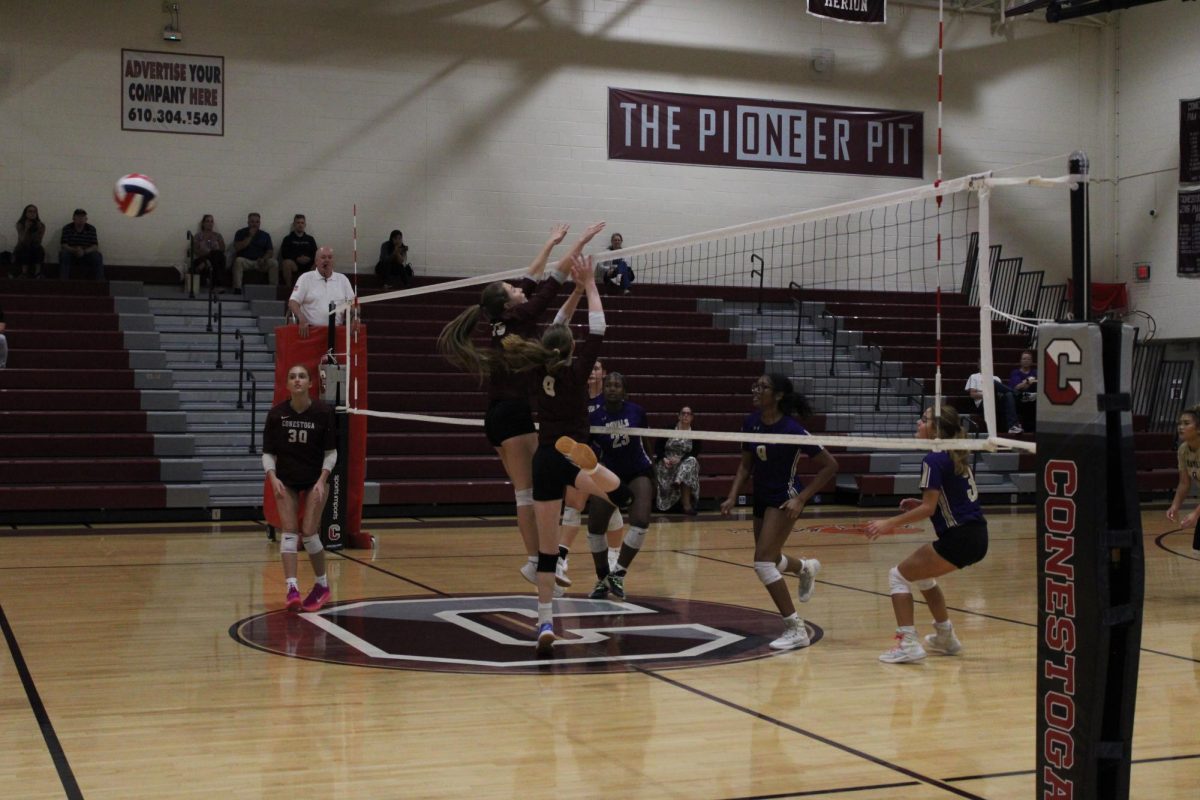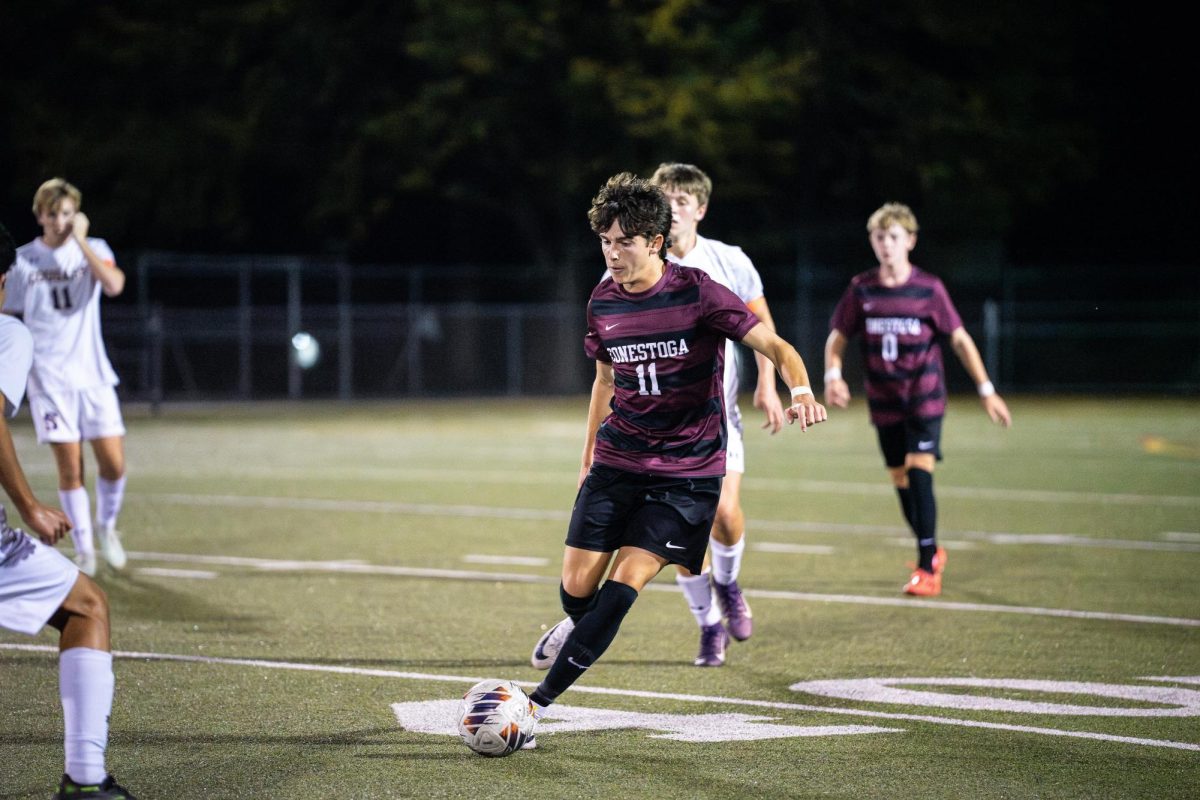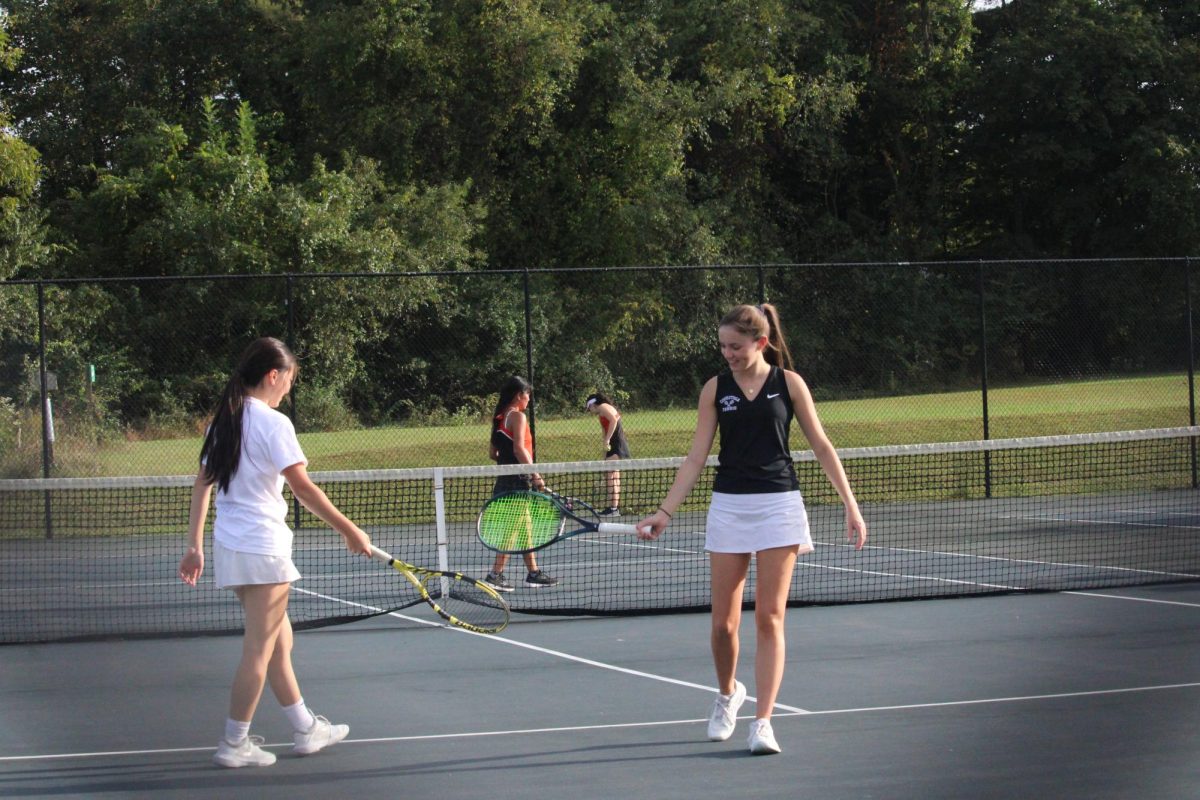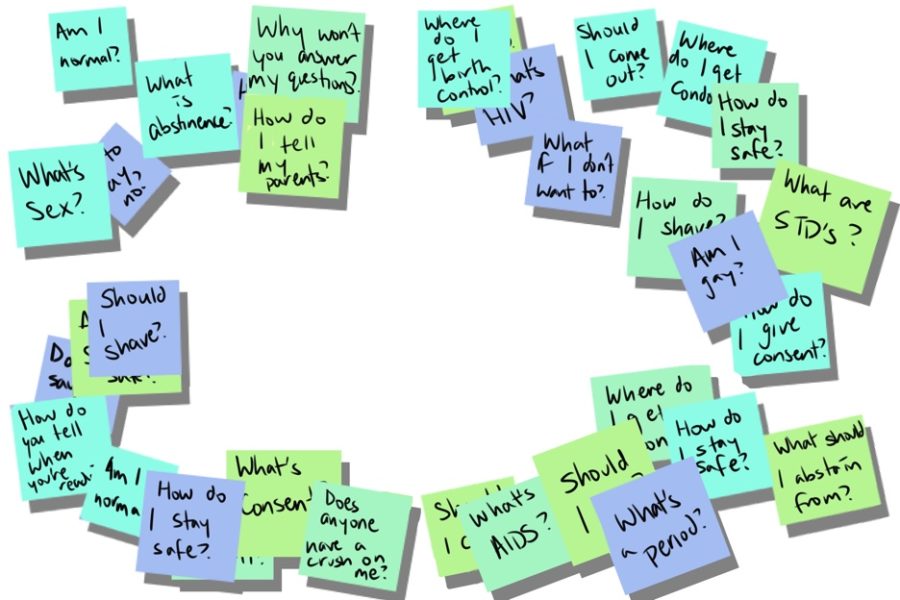By Devon Rocke, Ben Shapiro and Shreya Vaidhyanathan, Co-Managing Editor, Co-Copy Editor and Webmaster
“High schoolers are having sex,” freshman Chloé Cabel said. “Denying it isn’t doing anyone any good.”
In a 2017 report released by the CDC analyzing Pennsylvania State Health Education Laws, 11 out of every 30 high school students reported having been or currently being sexually active. Despite this, the state of Pennsylvania does not mandate the following topics to be taught in public schools: sexual education, contraceptive methods, consent and sexual orientation. The only requirements for public schools in Pennsylvania are to stress abstinence and to provide instruction on HIV as stated in the Public School Code of 1949. If schools decide to cover any of the aforementioned topics, there is no requirement for the curriculum to be medically accurate.
In accordance with this legislation, Conestoga has not had a human sexuality (sex education) curriculum in place since 2009. The family life curriculum taught at both middle schools in the district includes a brief introduction to anatomy and reproduction, but is never followed up with comprehensive education relating to human sexuality at the high school level. This curriculum is optional, as the current laws mandate that parents and guardians are given the option to opt their child out of the unit.
“As a district, our responsibility is to teach the state standards,” said Conestoga health and physical education teacher Marcia Mariani, “and so, if the teachers are able to get the state standards taught — whatever those are — then I think that we’re doing our job.”
Pennsylvania Reps. Brian Sims and Jessica Benham are in the process of amending the Public School Code of 1949 to include age-appropriate, medically-accurate, comprehensive sex education to all grade levels. Introduced to the Pennsylvania House of Representatives on May 5, 2021, Sims and Benham’s House Bill 1335 hopes to shift the requirements for health and sexuality education to be more inclusive and accessible. Benham advocates for state-mandated sex education, believing it to be vital for the health and safety of young people.
“Sex education is incredibly important for a number of reasons: it’s important for (young people) to have all of the accurate scientific information about their own health in order to make the best decisions that they can for themselves,” Benham said. “I think it’s important for people to understand how their bodies work and how other people’s bodies work; that’s integral to our health and well-being as humans. It’s critical that we teach concepts like consent, because we want to make sure that people understand how to treat other people with respect and that applies in contexts beyond sex education.”
Sophomore Hannah Hoffman shares Benham’s concerns about the lack of sex education taught to students. She knows from personal experience that without proper education, students are left uninformed.
“I think an issue with not being taught sex ed is ignorance (about sex). Instead of learning about it, (teens will) probably just go into (sex) without knowing any prior information, which would be harmful from a safety standpoint,” Hoffman said. “A lot of the guys I talk to don’t even understand how the menstrual cycle works.”
Pennsylvania schools stress abstinence
Through Elana Willinsky’s work with Planned Parenthood, a nonprofit organization that provides sexual health care and defends reproductive rights, she has come to the conclusion that abstinence-based sex education is ineffective. Willinsky is the External Affairs Manager of Planned Parenthood Southeastern Pennsylvania and advocates for state-mandated sex education.
“There are countless studies proving that abstinence-only education does not work, yet there are still young people in Pennsylvania who are receiving abstinence-only lessons, often along with medically inaccurate information, ideology instead of information, and shame and stigma,” Willinsky said. “Comprehensive sex education reinforces that freedom around sexuality and sexual decision-making is a human right.”
Cabel agrees with Willinsky and wishes that the education she received was not focused on abstinence. To her, abstinence-based education is not beneficial nor is it doing students justice; she sees the lack of required sex education as a rejection of the truth.
“We’re not learning the important things that we need to learn because (the state) is denying that children are having sex. We need sex ed to teach kids how to be safe,” Cabel said. “Abstinence and virginity both as concepts tie in together because they teach children that their self worth is based on their sexual activity.”
Conestoga’s past with sex education
Up until 2009, Conestoga had two mandatory health courses: Health 1 in freshman year and its successor, Health 2, in junior year. The former semester-long course included the topics of sex versus sexuality, male and female reproductive systems, menstruation, pregnancy, birth control, sexual assault, domestic violence, decision-making, abstinence, and sexual exploitation. In 2009, the course was discontinued in a decision voted upon by the school board. According to district curriculum supervisor Oscar Torres, this type of change is quite common.
“We have a summer workshop with our teachers, and whenever we see that the profession is changing, we work to come up with new lessons and units to adjust the curriculum in the district,” Torres said. “We (the curriculum supervisors) believe in a bottom-up approach where (the teachers) are the ones that say, ‘Okay, this is what we’re recommending,’ and then we will develop an updated curriculum for the following year.”
After Health 2 was discontinued, the Health 1 course expanded to become Health and Fitness. The curriculum from Health 2, including its sex education lessons, was never implemented into Health 1. Regarding other classes at the high school, Conestoga offers the elective Anatomy and Physiology to sophomores, juniors and seniors. However, since the course does not teach reproductive health, Conestoga does not currently offer any classes that teach human sexuality.
Consequences of not having sex education
With only one semester of health in freshman year that does not cover sex education, junior Namrta Wagle has concerns regarding not being taught about reproductive health, sexual pressure and inclusivity, as she has noticed a lack of knowledge surrounding these topics at the high school.
“We did not have a sex ed unit (in Conestoga’s health course), and there are kids who really need it. I don’t even know how many kids are walking around ’Stoga without the knowledge of how to have safe sex. Like, they couldn’t even tell you what a condom is,” Wagle said. “I wouldn’t even know how to tell you what’s lacking (from sex education) because I have not received sex education. It just didn’t happen.”
Furthering Wagle’s point that the health curriculum did not teach safe sex practices, freshman Brett Baptiste notes specific topics on which he would have liked to receive lessons.
“They (the health teachers) are like, ‘Oh, yeah, LGBTQ+ community,’ but they’re not actually talking about it. I think they beat around the bush whenever they tried to talk about it,” Baptiste said.
With a masters degree in Human Sexuality Education, Al Vernacchio, a national sexuality educator and speaker, validates Baptiste’s concerns. He teaches sex education to students ages 3 to 18 as the sexuality education coordinator for Friends’ Central School in Wynnewood, Pennsylvania. One of his core values in sex education instruction is creating an inclusive environment for his students.
“By definition, sex ed that is not inclusive is prejudiced,” Vernacchio said. “A lot of people think that means that you should have a separate section on LGBTQ+ folks in your sex ed class, but that’s not what you want to do; you want to integrate, not isolate.”
Like Baptiste, freshman Olivia Chu recounts the minimal sex education she received in middle school, defining it as “non-inclusive.” In her eyes, the curriculum centered on cisgender — a person whose sense of gender identity corresponds with their birth sex — and straight students, disregarding those who do not fit into the binary.
“I think the (middle school) health program has been directed towards cis(gender) and straight audiences: my (middle school health) teacher completely avoided (gender and sexuality topics),” Chu said. “When one of my classmates participated and asked about things in terms of sexual orientation pertaining to LGBTQ+ people, my teacher just said, ‘You can research that on your own.’”
The teacher’s response in this situation was in accordance with state legislation. Questions asked in health class must be answered according to curricular guidelines, and because LGBTQ+ topics are not addressed in the middle school curriculum, teachers are barred from discussing it. Junior Thomas Dunlap believes that the district’s decision to keep LGBTQ+ topics out of class is not the right course of action. He explains how the lack of open discussion is a major factor in students turning to the internet for information.
“If we leave anything untaught, then the internet will fill in those gaps with misconceptions and bad information. When it comes to important topics like health and safety during sex, it really can’t be left up to the internet to teach us,” Dunlap said.
Speaking from her 38 years of experience as a health teacher, Mariani stresses the negative effects of relying on information from the internet.
“As a person who’s certified in (health and physical education), (safe sex) is an important topic for kids to learn about from an expert,” Mariani said. “Learning about it from the internet? Not a good idea. Learning about it from a friend? Not a good idea. Learning about it from some TV show? Not a good idea. And I think that that’s where a lot of kids are getting their behaviors from: social media.”
Citing the internet, specifically social media, as a spreader of misinformation, Dunlap references the benefits of open conversation in health class and how it can teach consent from a young age.
“Rape culture is only perpetuated when you don’t talk about consent. We really need to get open classroom discussion. It doesn’t have to be personal, but it has to (include) real life application: what people would do in scenarios, how can they do it differently and (how to) make it actually pertinent to people’s lives,” Dunlap said. “A lot of health class just goes over people’s heads because it seems like, ‘Oh, yeah, that won’t be me.’ If health class is removed from the people, it’s not going to be very useful.”
Stigma around the word “sex”
While Vernacchio recognizes that balancing various opinions is difficult for school districts, he urges people to recognize their internal biases against words like “sexuality.” To avoid confusion and rumors, Vernacchio always starts off his human sexuality courses by defining the word itself.
“When people hear the word sexuality, what they think about is sex and sexual activity,” Vernacchio said. “One of the first things I do (as a sexuality education coordinator) is make it really clear that when I say the word sexuality, I mean something much bigger than that. For me, sexuality involves our bodies, our minds, our hearts, our relationships and the way we live in the world, not just what’s between a person’s legs and what they do with it.”
According to Vernacchio, something as simple as the definition of “human sexuality” in the context of sex education holds a negative connotation in today’s world and will not be destigmatized until sex education is mandated and available for everyone. This is part of the reason representative Benham is advocating for H.B. 1335; it’s important to her that students are given accurate information. As a person who was not taught sex education in high school, Benham reflects on how that impacted her development.
“When I was in high school, I did not have the best information to make safe and healthy choices for myself. I think that having all of the necessary information about how our bodies work, about how reproduction works, about what sexually transmitted infections are, pregnancy and so on is really important because it allows young people to make informed decisions,” Benham said. “That’s something that I wish that I would have had myself and I think that giving young people information allows them to have more control over what their future looks like.”





















































































